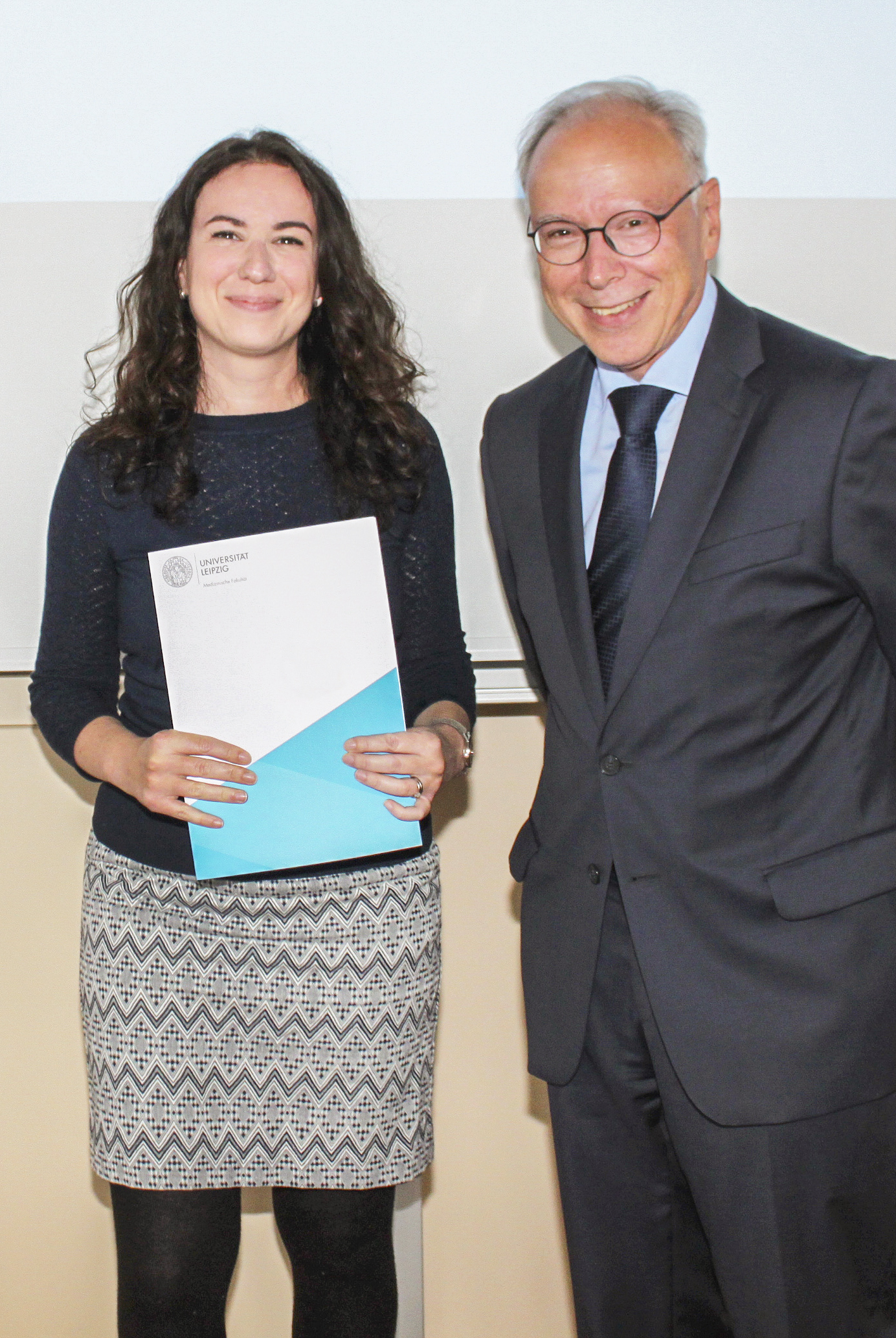Leipzig University’s Faculty of Medicine hands PhD prize to Dr. Alexandra Rockstroh
Dr. Alexandra Rockstroh from the Department of Immunology at the Fraunhofer Institute for Cell Therapy and Immunology IZI received one of the PhD prizes awarded in 2019 by the Faculty of Medicine at Leipzig University for her doctoral thesis entitled “Development of procedures for the specific, serological diagnosis of dengue and Zika virus infections using modified envelope proteins”. Handed out every year in recognition of outstanding scientific achievements in the fields of medicine and dentistry, the prize was presented on September 17, 2019, by faculty dean Prof. Christoph Josten during the faculty council meeting.

The findings made in Dr. Alexandra Rockstroh’s PhD thesis have come to form the basis of the development of specific and sensitive blood tests for dengue and Zika virus infections that could be used in particular in areas with co-circulating flaviviruses.
Both dengue and Zika are viral diseases transmitted by mosquitoes. The Zika virus epidemic affected many countries in Central and South America in 2015 and 2016, while between 50 and 100 million cases of dengue fever are reported around the world every year. The two diseases are extremely similar in terms of symptoms and are both accompanied by high fever. In the case of the dengue virus, however, there is a risk of developing a life-threatening hemorrhagic fever. The Zika virus on the other hand can cause severe deformities in children such as microcephaly when contracted during pregnancy. This results in the brain becoming damaged, underdeveloped and often smaller than usual. It is therefore vital that a serological laboratory diagnosis, i.e. a blood test able to distinguish between the two diseases, is carried out prior to treatment. As, however, the two viruses are closely related and homogeneous in structure, tests have so far given rise to a considerable degree of cross-reactivity, which can result in false-positive test results. This makes it practically impossible to reliably differentiate between them at present.
In her PhD thesis, Dr. Alexandra Rockstroh developed a procedure that is able to avoid this cross-reactivity, thus enabling a specific, sensitive diagnosis of the dengue and Zika viruses. A team headed up by Dr. Sebastian Ulbert, head of the Department of Immunology at Fraunhofer IZI, has further succeeded in serologically distinguishing the viruses from infections with other closely related and widespread flaviviruses such as West Nile virus, Japanese encephalitis and TBE.
The diagnostic procedure developed by the Leipzig-based scientists has now been patented and licensed out to two companies. Clinical testing in outbreak scenarios proved successful, strengthening the hope that the research results from the Fraunhofer Institute for Cell Therapy and Immunology IZI will help to precisely diagnose dengue and Zika virus infections in future.
